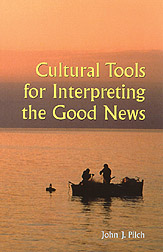
Chapter one examines the core Middle Eastern cultural concepts honor and shame as they are reflected in the stories about Jesus’ origins and his behavior in adulthood. Chapter two describes how Jesus grew up to become a typical and successful male in his culture. Chapter three presents Jesus as a Holy Man in his tradition who announces the reign of God especially in parables. Chapter four shows how Jesus sought to establish the reign of God especially in his healing activities and by offering fresh insights into the appearances of the Risen Jesus.
Chapters are “Honor and Shame,” “How a Mediterranean Boy Becomes a Man,” “Jesus Announces the Reign of God,” “Jesus Seeks to Establish the Reign of God.”
John J. Pilch, Ph.D., teaches Scripture at Georgetown University as well as at the University of Pretoria. His other The Liturgical Press publications include The Cultural World of the Apostles: The Second Reading, Sunday by Sunday, Year A; The Cultural World of Jesus series; The Triduum and Easter Sunday: Breaking Open the Scriptures; The Cultural Dictionary of the Bible; Choosing a Bible Translation; Galatians and Romans in The Collegeville Bible Commentary; and articles in The Modern Catholic Encyclopedia, The Collegeville Pastoral Dictionary of Biblical Theology, and The Bible Today.
"True to his solid biblical scholarly approach, John Pilch guides the reader into meeting the Mediterranean “Man” Jesus by presenting the lenses of this Mediterranean culture. He sketches for us an understanding of “Honor” as the core value of this culture at the time of Jesus. Acquiring honor and knowing more about the cultures perspective on shame, healing and their reign of God are but a few new insights given into the life and parables of Jesus. Clearly by knowing the Mediterranean culture as one enters into the Scriptures is critical in our perspective of receiving the message of Jesus." -Joanne Prei
"John Pilch continues his timely work on the cultural and pastoral dimensions of the Scriptures. The writing is fast-paced, practical, and engaging; while the ‘cultural tools’ are accessible, clear, and well-illustrated. This is a great addition to our biblical toolkit." - David Valtierra, C.O., Scripture Institute at The Oratory, Rock Hill, South Carolina
(Purchase of this title helps you qualify for the free shipping option if it is being offered at the time of your order.)